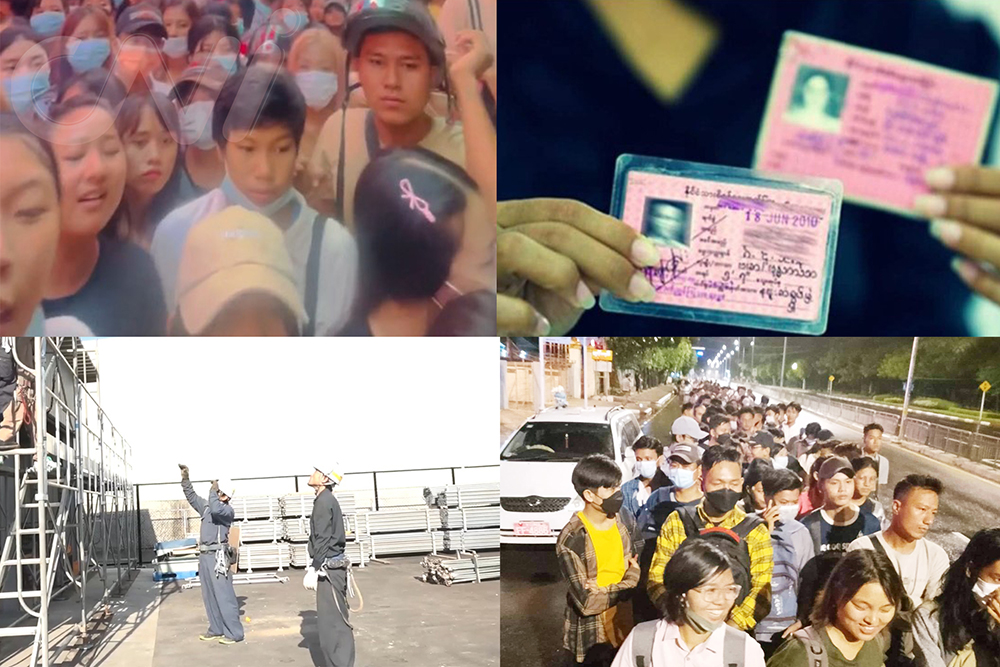CNI News
13 August 2022
News reports went viral on social media that holders of national registration card numbers beginning with 7/, 9/ and 11/ were not allowed to go to work in Japan.
However, Japanese employers were not likely to impose such restrictions, those who used to work in Japanese agencies and Japan told the CNI.
Ko Nay Oo, a director in Naytic Asia Agency, told the CNI, “ The restrictions have nothing to do with Japanese employers. They don’t know and are not interested in such issues. They will employ anyone who is willing to work for them. No foreign country has imposed such restrictions. Some people were likely to be prohibited from leaving the country at the airport but local agencies, which did not want to put blame on someone else responsible for the prohibition, gave excuses in the name of the Japanese side. When people go to other countries, they need to submit not NRC cards but passports. It was likely that some supporters of the Civil Disobedient Movement were prohibited from leaving the country at the airport as security officers there already had their lists and were taken by authorities for interrogation. So, some people posted such misleading reports on social media as no one wanted to give details.”
A construction stie in Japan.
However, Ko Myat Thu Aung, who used to work in Japan, told the CNI that many Myanmar workers who went to work in Japan under on-the-job-training programs fled from their employers recently and it was likely that some overseas employment agencies did not choose holders of NRC numbers starting with 7/, 9/ and 11/.
The number of Myanmar workers who fled from their primary employers has increased as they went to Japan out of their enthusiasm without considering the type of jobs they would be offered and could not bear the fatigue at jobs in Japan, he added.
Ko Myat Thu Aung said, “Japanese employers had to spend a lot of money and time to take in foreign workers but when the workers fled from them, they suffered losses. After encountering such issues frequently, they might ask Myanmar overseas employment agencies what kinds of workers they were sending. It was said that Japanese employers no longer wanted to employ Myanmar workers because many on-the-job training workers set a bad example. They think that employing Myanmar workers has a lot of problems and they can employ workers from any other countries like Vietnam and China, who can be hired easily without any problem. So, they hire workers from countries they like. They employed Myanmar workers as they had thought Myanmar workers would be more hardworking and useful at their workplaces but they had to face many problems when Myanmar workers fled from them.”
An agriculture farm in Japan.
Recently, the number of Myanmar nationals who want to work in Japan has increased dramatically and Japanese language schools are mushrooming in Myanmar since the Japanese language proficiency test conducted by the government of Japan is scheduled in December.
Yamazaki Thant, who has been sharing knowledge about Japan, told the CNI that Japanese employers hire anyone who meets the required qualifications and aspirants to go to Japan should study Japanese thoroughly without thinking of the NRC number restrictions.
He said, “Aspirants to go to Japan are mainly required to study Japanese and skills necessary for their jobs thoroughly. I don’t want them to derail from their focus by believing what other people say too much. I think they should mainly focus on their purpose of going to Japan and what is necessary for it by going straight without looking to the left or right.”
At present, the number of people aspiring to go to work in Japan is higher than that of the pre-pandemic period and they were seen jostling for application forms of the JLPT scheduled in December this year.




